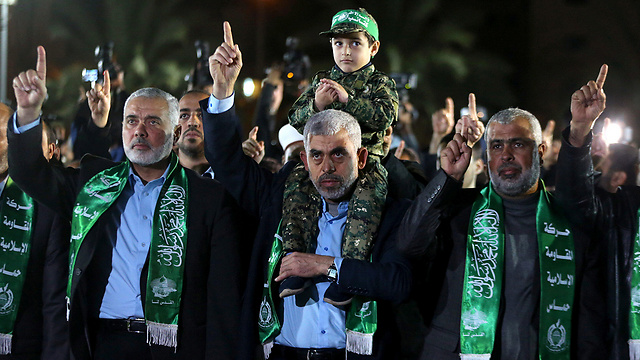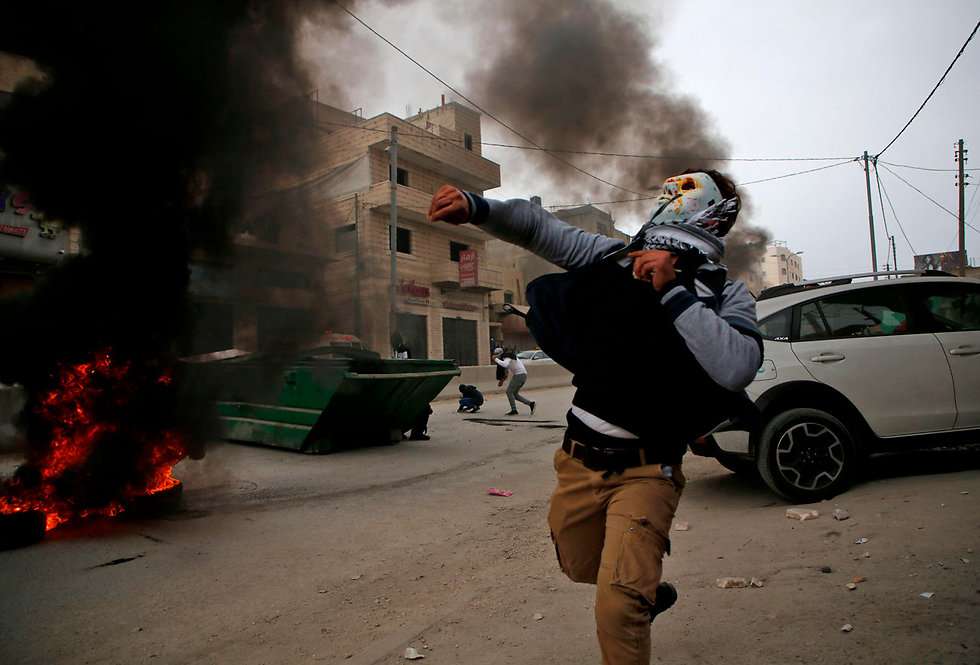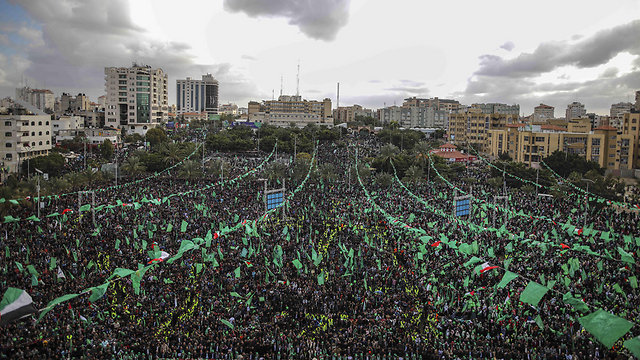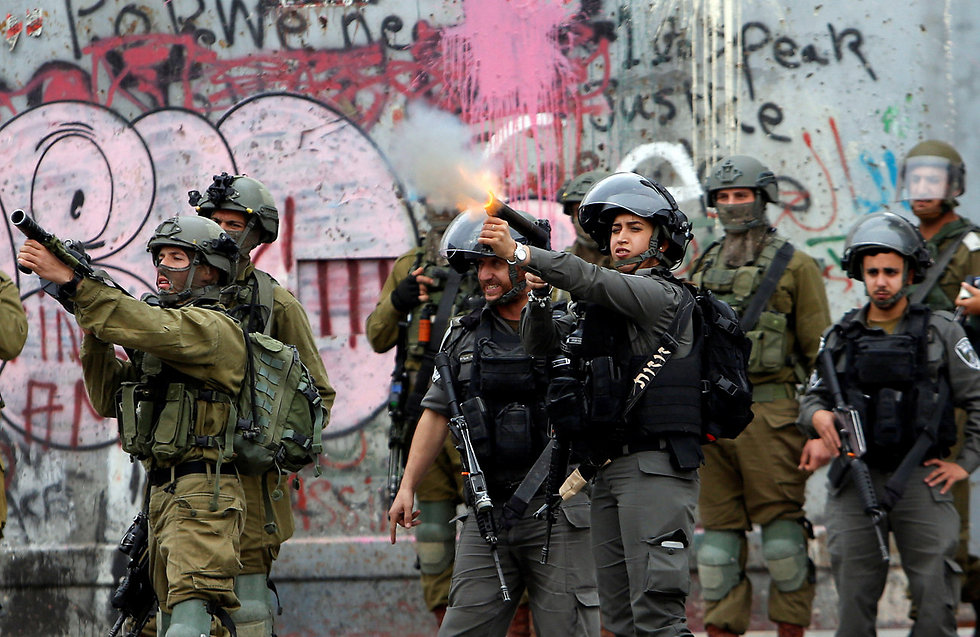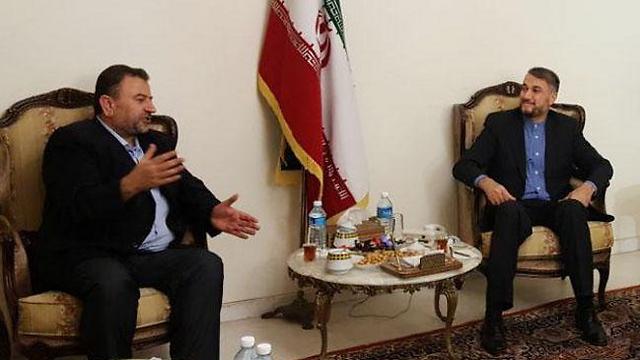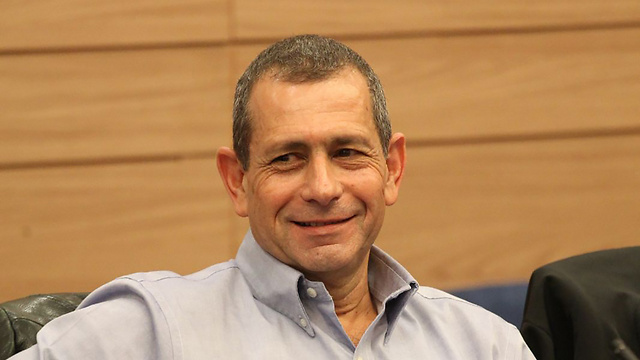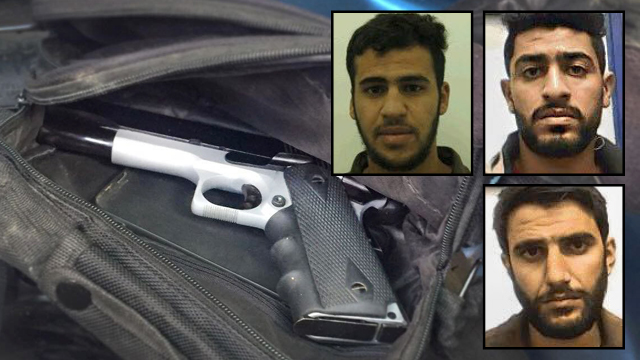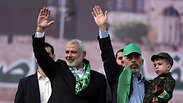

Shin Bet warns of Hamas attempts to carry out mega-terrorist attack
Data summing up terror threats and intelligence activity by Israel in 2017 indicate the principal danger at the beginning of 2018: Hamas attempts to carry out large-scale attacks in Israel or West Bank; IDF intelligence concludes Palestinian attempts to link Trump’s Jerusalem move with anti-Islamic motivation to hurt the sanctity of Jerusalem have failed, thus the violence that followed the declaration is decreasing.
Israel’s General Security Agency, or as it is commonly known, the Shin Bet—which is responsible for preventing terrorist attacks inside Israel and in the West Bank, the Gaza Strip and the Sinai Peninsula—has compiled a report of 2017, where it also outlined the principal challenge anticipated for the coming months. The main points were presented by its chief, Nadav Argaman, last week at a closed session of the Knesset Foreign Affairs and Defense Committee.
Following are some of the report's important sections, the ones with the greatest potential for affecting Israel, the Palestinian Authority and the Middle East in the near future. They are based on conversations with sources in the Shin Bet and the Israel Defense Forces (IDF) over the past week.
On the escalation of violence after US President Donald Trump’s recognition of Jerusalem as Israel’s capital, the Israeli intelligence assessment is that the violence is clearly declining from week to week. The repeated postponement of US Vice President Mike Pence’s visit to Jerusalem (due to the Senate vote on the tax cuts bill) thwarted the intentions of some parties to produce more protests, and from one postponement to the next, reduced the level of motivation.
As Israel's Military Intelligence Directorate (MID) sees it, the attempts to link Trump’s declaration to religious (Islamic) elements concerned with the sanctity of Jerusalem (i.e. to claim that Trump had declared a religious war against Islam) have failed. The Trump declaration remains a fraught and serious political matter, but it is not a religious issue, and hence the relatively limited potential for producing violence.
However, intelligence sources believe that America’s ability to pass itself off as an honest broker between the Israelis and the Palestinians has become even more tenuous, and that absolute lack of trust prevails between the Palestinian Authority and the Trump administration.
In recent weeks, after the discovery and demolition by the IDF of a number of tunnels dug by various militias from the Gaza Strip into Israel in order to carry out terror attacks, and the resulting killing of many members of those militias, Israeli communities have been targeted by rockets fired from Gaza on multiple occasions. These attacks have caused neither casualties not damage, but the firing of the rockets in itself has undermined the de facto ceasefire that has prevailed in the area for a long time.
Nevertheless, the Shin Bet and MID believe that Hamas in Gaza is not interested in instigating a significant new military encounter with Israel.
Hamas in Gaza has been detaining many members of rival Jihadist movements (Salafist splinter groups identifying with al-Qaida and ISIS, Islamic Jihad, et al.) and has even been using violence against them in order to stop them from firing rockets at Israel.
Hamas in the West Bank and outside the Palestinian territories has been conducting an entirely contrary agenda to the movement in Gaza and is eager to carry out mega-terror attacks against Israel.
Their logic, according to the Israeli assessment, is that significant actions against Israel from Gaza would elicit an Israeli response that could harm or even undermine Hamas rule in the strip.
An operation against Israel inside or from Judea and Samaria would weaken the control of the Palestinian Authority and Israel’s ability to respond would be limited. An Israeli attack against the Fatah-dominated PA would be of double benefit for Hamas. There is therefore an unprecedented effort underway by Hamas in Gaza and Hamas branches outside of Israel to instigate attacks in or from the West Bank.
The Hamas commander abroad is Salah Arouri. Born in the village of Aroura in the Samaria region, he has served as head of Hamas in the West Bank. He was recently promoted to the rank of deputy chair of the organization, which is seen as attesting to the importance Hamas ascribes to this area.
Arouri spends his time traveling between Qatar, Turkey and Lebanon. Israeli intelligence keeps tabs on him there, and identifies the instructions he conveys in efforts to launch attacks, including suicide bombings in shopping malls, buses and other crowded venues.
During 2017, the Shin Bet uncovered and detained no fewer than 148 Hamas cells in the West Bank, an enormous number by any standards. Interrogation of these squads brought to light eight detailed plans for the abduction of Israeli soldiers or civilians.
In total, during 2017, the Shin Bet says it uncovered and foiled 400 terror attacks that were being hatched in the West Bank. In his appearance before the Knesset Foreign Affairs and Defense Committee, Shin Bet Director Nadav Argaman spoke of a “misleading quiet” currently prevailing in the region.
According to a senior intelligence source, “The fact that buses are not blowing up every day is not a result of a lack of desire, effort, orders or investment of Hamas’s resources, it is rather the result of interdiction … The heads of the Hamas HQs in Gaza and abroad, what they are trying to do from the moment they wake up in the morning and until they go to sleep at night, is to instigate terror in its worst possible form.”
The success of the preventive measures proves yet again that the Shin Bet enjoys a significant intelligence advantage over its adversaries. This intelligence edge, in cooperation with the IDF, the Israel Police, and the Palestinian Authority, is what has made the effective prevention possible.
Notwithstanding the success, there are two salient difficulties that overshadow the future that should be mentioned. The first is that although the Palestinian Authority is indeed cooperating with Israel by combating Hamas and arresting its members, it is not prosecuting the terrorists or keeping them in detention for long periods of time.
The main concern of the intelligence community is that ultimately one of the hundreds of attempts that are planned and made would be overlooked or missed and consequently executed. One mega-attack would alter the political situation in the region.
Argaman said before the Knesset panel that instability is prevalent in both the West Bank and the Gaza Strip, and as 2018 dawned, “the defense establishment is facing a significant challenge.”
Another interesting topic in the Shin Bet conclusions and statistics of 2017 is regarding the "lone wolves," acts of terror by individuals without any instruction from an established terror group.
During the past two years, the Shin Bet has devised various mechanisms for identifying independent terrorists, “lone wolves,” before they do their mischief. This is somewhat reminiscent of the movie Minority Report and has aroused a certain amount of criticism.
Either way, it is clear that there has been a dramatic decrease in the number of attacks by individuals acting alone. According to the Shin Bet’s annual report, during 2017, the agency identified 1,100 potential individual attackers, some of whom were arrested, interrogated and prosecuted. Others, who had not yet begun realizing their plans but about whom there was a reasonable fear they were going to act, were handled more gently and warned orally, sometimes their parents as well.
The Shin Bet's preventive measures have been so effective that in the last nine months, intelligence officials from the United States and Europe have visited the Shin Bet HQ in north Tel Aviv to study the agency’s methods for locating individual terrorists.
Ronen Bergman, a senior correspondent for military and intelligence affairs at Yedioth Ahronoth and a contributing writer for the New York Times, is the author of the forthcoming “Rise and Kill First: The Secret History of Israel’s Targeted Assassinations .”














